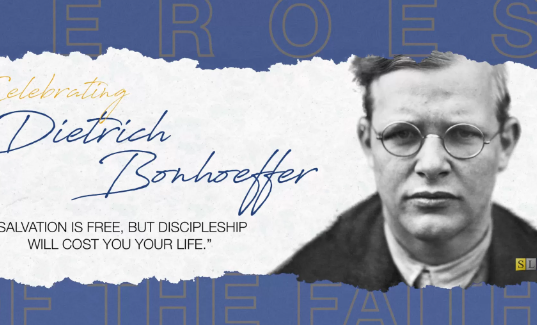Dietrich Bonhoeffer, a German theologian, pastor, and anti-Nazi dissident, is celebrated for his unwavering moral courage in the face of tyranny. His life and work offer valuable lessons about standing up for one’s beliefs, especially in turbulent times. Understanding Bonhoeffer’s resolve can inspire individuals today to pursue justice and integrity in their own lives.
The Early Years: Influences on Bonhoeffer’s Courage
Bonhoeffer was born into a well-to-do family in 1906, where he was exposed to rigorous intellectual and theological discussions. His education shaped his thoughts on ethics, responsibility, and faith. Influenced significantly by his time in America, where he encountered diverse viewpoints and social injustices, Bonhoeffer began to explore the relationship between faith and social issues. This foundation laid the groundwork for his courage, motivating him to speak out against the atrocities committed by the Nazi regime.
Moral Stance Against the Nazis
As the Nazis rose to power, Bonhoeffer took a brave stance against their ideology. Unlike many who turned a blind eye, he openly criticized the regime and its theological justifications for anti-Semitism. He became actively involved in the Confessing Church, which opposed the state-controlled German church. Through his writings and speeches, Bonhoeffer emphasized the church’s responsibility to oppose evil, highlighting that inaction in the face of injustice is itself a form of complicity. His actions demonstrated that true faith often requires personal sacrifice and risk.
The Ultimate Sacrifice
Bonhoeffer’s unwavering commitment led him to participate in a plot to assassinate Hitler, a choice that ultimately cost him his life. Arrested in 1943, he spent nearly two years in prison and continued to write and inspire others, reflecting on faith, ethics, and the nature of evil. His final letters reveal a man deeply committed to his convictions, willing to pay the ultimate price for his beliefs. Executed just weeks before the fall of the Nazi regime in 1945, Bonhoeffer’s courage resonates as a powerful testament to standing firm in one’s principles amidst overwhelming darkness.
Conclusion
Dietrich Bonhoeffer’s legacy teaches us the importance of moral courage and the impact one individual can have in the fight against oppression. His example reminds us that taking a stand for one’s values is crucial, no matter the personal costs. As we navigate our own challenges, let us draw inspiration from Bonhoeffer’s life and strive to embody his spirit of courage and conviction. To learn more about this remarkable figure, consider exploring his writings or engaging in discussions about ethics and justice in today’s world.

